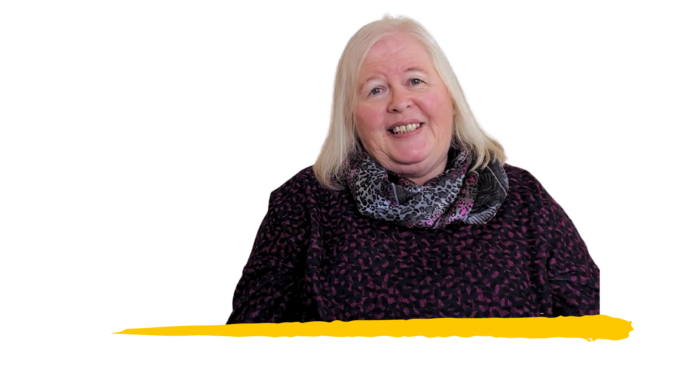Learn more about what you need to think about when starting your kinship peer support group. Where to begin and how to create a strong foundation for your group to grow.
Section 3F: How to build trust in your kinship peer support group
Trust is the foundation for a kinship peer support group. It allows everyone to relax into a space surrounded by others who truly understand.
Let’s explore what trust really means and some tips for developing it in your group.
What is trust?
Trust is when you feel you can place confidence and belief in others and rely on them to respect that. That might be keeping information private or showing respect to others.
If there is trust within a group, it means that every member of the group feels they can share openly and honestly and know that they will not be judged. Their comments will not be discussed outside of the group. It’s a confidential space.
Trust also develops in group when everyone feels they can be themselves and their rights are respected. People don’t have to agree on everything, but they do respect everyone in group in line with the Group Agreement.
Why is trust important in peer support groups?
Trust is the foundation for groups and as a group leader, you are responsible for developing it.
By creating a space where kinship carers feel comfortable and supported by everyone present, it allows them to:
- open up and share freely, perhaps for the first time on their kinship journey with others who understand
- understand how others’ kinship journeys are different from their own. How different types of kinship care, or the locations that you live can impact on your journey. No one is the same
- develop positive and supportive relationships with others in the group which can form friendships over time, helping reduce feelings of loneliness and isolation
Building trust in your kinship peer support group
Rachael from the team at Kinship shares why trust is so important in kinship peer support groups, and how this links into your role as group leader.
Duration: 1min 16secs
Group members have trust in you as a group leader. They trust you to show up for them each time at group. A group can very quickly become someone’s safe place to share, knowing that the others in the room have shared similar experiences. For example, if you regularly cancelled the group meeting or moved dates and times, group members can lose trust in you running the group.
Developing trust in your peer support group – what can I do as leader?
How do we balance someone’s right to speak with the wishes and feelings of others?
How do we show that others are respected?
There are a number of things you can do to form a trusting and safe space for your members:
- listen – create a space where people listen to others and respect their experiences
- no judgement – develop a space where people don’t judge what may have happened in the past or what they are experiencing
- everyone is welcome – you encourage group members to be themselves and to relax in the space, and create an open environment that anyone can join
But, as a group leader you might need to stop someone sharing too openly. It might be causing distress to the wider group, or they might be taking up too much of the conversation and limiting others in sharing.
How can you overcome this?
- are there too many people in the room – the group may have outgrown the space where you meet and it might be time to find a larger venue or split into smaller groups for discussions
- new group members – attending groups for the first time can make people feel anxious so it’s a good idea to meet them before they join or have a phone call to introduce yourself
- taking control of the conversation – if a group member takes over the group discussion, or they become rude or disrespectful, you will need to step into the conversation to move things along, or diffuse the space
Remember, in a support group people don’t have to pretend that they’re okay. It can be a relief for someone to be able to say that they’re not coping or that they don’t know what to do. Kinship carers can feel really unsupported, and it is likely that they will want to share how tough life is.
It’s a balancing act for you as group leader, to give group members space to share, while making sure it’s not overstepping the wider group’s agreements. This helps underpin trust across the group. Find out more tips in Section 4.
"(When you share in group) It’s like stress relief. When you hold all of this in, and then when it's out, it's such a weight off your shoulders. You don't think at the time, but afterwards, after the tears and everything, it comes out and you feel so much better. That you've been listened to, that people are there and they understand."

Other support from Kinship
Here at Kinship, we offer a range of free support for all kinship carers, including workshops, online advice and information, and peer support groups.
Contact our advice service to speak to an adviser or book an appointment.
